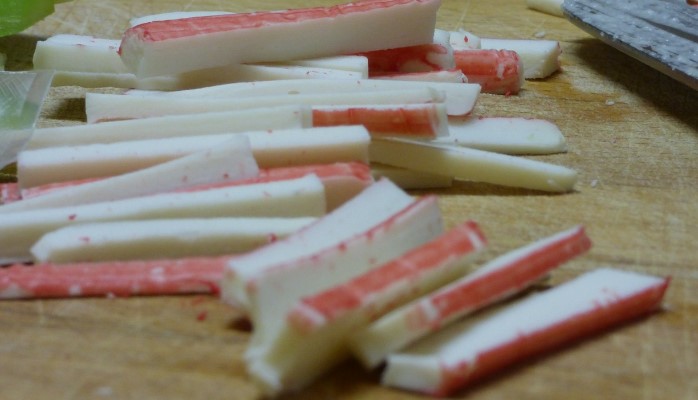
If you have a shellfish allergy, you might be wondering whether it’s safe to consume imitation crab. After all, imitation crab meat often looks and tastes similar to real crab, but is it safe for those with shellfish allergies? Let’s dive into this topic to provide clarity on whether imitation crab poses a risk for individuals allergic to shellfish.
Understanding Imitation Crab
Imitation crab, also known as surimi, is a seafood product made by blending minced fish (typically white fish such as pollock or haddock) with other ingredients to mimic the taste, texture, and appearance of real crab meat. These additional ingredients often include flavorings, starches, and additives to enhance the imitation crab’s taste and texture.
Allergy Concerns
While imitation crab is made from fish, not shellfish, individuals with shellfish allergies should still exercise caution. Cross-contamination can occur during processing and manufacturing, leading to traces of shellfish proteins in imitation crab products. Manufacturers often use shared equipment or facilities to produce various seafood items, increasing the risk of cross-contact.
Labeling Regulations
In many countries, food labeling regulations require manufacturers to disclose major allergens present in their products, including shellfish. If imitation crab contains any shellfish-derived ingredients or is processed in facilities handling shellfish, it should be clearly stated on the packaging. However, it’s essential to remain vigilant and read labels carefully, as regulations may vary by region.
Safe Consumption Practices
For individuals with shellfish allergies, the safest approach is to avoid consuming imitation crab unless it’s certified as shellfish-free. Some manufacturers produce imitation crab specifically labeled as “shellfish-free” or “allergy-friendly” to cater to individuals with dietary restrictions. Additionally, contacting the manufacturer directly or checking their website for allergy information can provide further assurance.
Alternative Options
If you’re unable to consume imitation crab due to a shellfish allergy or cross-contamination concerns, there are alternative seafood options available. Look for seafood substitutes made from ingredients that are safe for your dietary needs, such as plant-based alternatives or fish products with clear labeling indicating the absence of shellfish.
Conclusion
While imitation crab is typically made from fish rather than shellfish, individuals with shellfish allergies should approach consumption with caution due to the risk of cross-contamination. Always read labels carefully, look for shellfish-free certification or allergy-friendly labeling, and consider alternative seafood options if necessary to ensure a safe dining experience. Prioritizing food safety and awareness can help individuals with shellfish allergies make informed choices regarding imitation crab and other seafood products.








